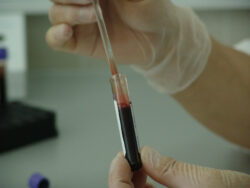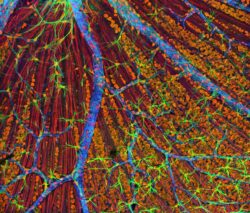Rare but Deadly: Urethral Cancer Strikes Men
Urethral cancer, a rare yet severe disease, primarily impacts males and can rapidly metastasize to surrounding tissues. This article offers a comprehensive exploration of urethral cancer, from its causes and prevention strategies to diagnostic methods and treatment options. It also provides support resources and discusses NCI-supported clinical trials. Our goal is to equip readers with crucial knowledge about this deadly disease, enabling informed decisions about prevention, diagnosis, and treatment.

Key Takeaways
- Urethral cancer primarily affects males and is a rare and aggressive disease.
- Early detection and diagnosis greatly improve prognosis and patient outcomes.
- Risk factors for urethral cancer include age, chronic inflammation, and sexually transmitted infections.
- Advances in treatment, including surgery, radiation, and chemotherapy, have been made, offering hope for improved outcomes and quality of life.
Understanding Urethral Cancer: A Brief Overview
In our ongoing exploration of men's health concerns, we must turn our attention to an uncommon but potentially lethal disease, urethral cancer, which disproportionately affects men and can rapidly spread to surrounding tissues. This malignancy, though rare, presents significant biological risk factors including age, chronic inflammation, and sexually transmitted infections. Its insidious nature often leads to late-stage diagnosis, greatly impacting the patient's quality of life. The physical discomfort, coupled with the psychological stress of dealing with a rare and aggressive cancer, can be debilitating. Treatment options often involve invasive procedures like surgery and chemotherapy, further affecting the patient's lifestyle. It is crucial to increase awareness, promote early detection strategies, and drive research towards finding effective treatments, to mitigate the dire consequences of this disease.
The Rarity of Urethral Cancer: Statistics and Facts
Despite its severe implications, urethral cancer ranks among the rarest forms of cancer, with statistics displaying a notably low incidence rate both globally and in the United States, but it carries a considerably high mortality rate due to its aggressive nature. Causes and risk factors of urethral cancer remain somewhat elusive due to its rarity, but some correlations have been identified such as age, chronic inflammation, and certain sexually transmitted infections. Despite it being rare, significant advances in urethral cancer treatment have been made. This includes surgery, radiation, and chemotherapy, often used in combination. Early detection dramatically improves prognosis, thus efforts to increase awareness and improve screening techniques are vital in combating this rare but deadly cancer.
Why Urethral Cancer Targets Men: A Biological Perspective
While anyone can develop urethral cancer, it is men who are predominantly affected, and this disparity can be explained from a biological perspective. Biological risk factors such as increased exposure to certain carcinogens, the presence of higher testosterone levels, and anatomical differences primarily contribute to this gender-specific susceptibility. Men's urethra, being longer and more complex, is more prone to developing malignant mutations. Furthermore, the presence of prostate gland, exclusive to males, introduces additional risk. The impact on quality of life can be devastating as this aggressive cancer tends to spread rapidly, leading to distressing symptoms like pain, urinary difficulties, sexual dysfunction and psychological distress. Understanding and addressing these biological determinants are essential for effective prevention, early detection, and treatment strategies.
Recognizing the Symptoms: Early Signs of Urethral Cancer
A patient's awareness of the early signs of urethral cancer, such as discomfort during urination and the presence of blood in the urine, is crucial for timely diagnosis and intervention. Recognizing symptoms early allows for prompt treatment, potentially improving patient outcomes. Regular check-ups play a significant role in early detection, highlighting the importance of health vigilance. Raising awareness about this rare but deadly cancer is essential, emphasizing the need for men to understand their biological and genetic risk factors. Knowing one's predisposition can lead to a better understanding of the underlying causes and the potential development of this disease. Thus, understanding biological factors, recognizing symptoms, and emphasizing early detection, underscore the importance of regular check-ups and raising awareness.
How Urethral Cancer Is Diagnosed: Tests and Procedures
Medical professionals diagnose urethral cancer through a series of tests and procedures designed to identify the presence and extent of the disease. These may include physical examinations, urine tests, imaging tests, and biopsy. Urine tests help identify abnormal cells while imaging tests, such as ultrasound, CT scans, and MRI, provide detailed images of the urethra and surrounding tissues. In a biopsy, a sample of cells is removed and examined under a microscope for signs of cancer. Advances in treatment are continually being developed and updated, offering hope for a better prognosis. The accurate diagnosis of urethral cancer is crucial as it forms the basis for effective treatment planning and management.
Stages of Urethral Cancer: What They Mean for Patients
Understanding the stages of urethral cancer, from initial diagnosis to advanced disease, and their implications for treatment and prognosis is a critical aspect of patient education and care planning. Early-stage cancer could be managed with surgical procedures or radiation, while advanced stages might necessitate more aggressive treatments such as chemotherapy. Prognosis and survival rates vary based on the stage at diagnosis, with early detection often associated with better outcomes. The impact on quality of life can be considerable, with potential effects on urinary and sexual functions. Support systems, including medical teams, therapists, and patient communities, play key roles in providing emotional and practical assistance during this challenging journey.
Treatment Options for Urethral Cancer: From Surgery to Chemotherapy
In the battle against urethral cancer, both surgery and chemotherapy serve as potent treatment options, offering hope for improved patient outcomes. Surgical advancements have enhanced the precision and efficacy of procedures, reducing post-operative complications, and improving survival rates. Techniques such as robotic-assisted surgery offer minimal invasiveness, resulting in faster recovery times for patients.
Chemotherapy, often used in conjunction with surgery, annihilates cancer cells that may remain post-surgery. A significant development in this field is targeted therapy, which uses drugs designed to attack specific cancer cells, sparing healthy cells from damage. This approach results in fewer side effects, as well as improved treatment outcomes. The continual evolution of these treatment strategies signifies a promising future in the fight against urethral cancer.
Living With Urethral Cancer: Coping Mechanisms and Support
Navigating through the challenges of urethral cancer involves not only medical intervention, but also the implementation of coping mechanisms and the utilization of support networks. It's crucial for patients to understand that they are not alone in this journey. Support groups are often available, providing a platform for sharing experiences, hardships, and triumphs. These groups can provide comfort, reduce feelings of isolation, and offer practical advice. In addition to this, individual coping mechanisms play a significant role. These could include engaging in physical activity, practicing mindfulness, or finding solace in hobbies or creative outlets. Psychological counseling can also provide a safe space to express fears and anxieties, helping patients to navigate their emotional journey with urethral cancer.
Prevention Strategies: Can Urethral Cancer Be Prevented
While urethral cancer is a rare and aggressive form of cancer, there are certain strategies that may potentially decrease the risk of developing it. Prevention strategies primarily focus on lifestyle changes and regular medical check-ups. Avoiding risky sexual behavior and abstaining from tobacco use can potentially lower the risk. Regular check-ups are crucial as they aid in early detection, significantly improving the prognosis. In addition, individuals who have a history of bladder infections or sexually transmitted diseases should consider regular screenings as they are at a higher risk. Further research is needed to develop more effective prevention strategies and to understand the precise causes behind urethral cancer. As of now, early detection remains the most effective preventative measure.
Medical Advancements: Recent Research in Urethral Cancer
Over the past few years, a substantial amount of research has been conducted to explore new treatments and therapies for urethral cancer, yielding promising results. Recent research has focused on the utilization of targeted therapies and immunotherapies, which aim to selectively attack cancer cells without harming healthy tissue. In addition, advancements in diagnostic imaging have allowed for earlier detection and more precise treatment. Furthermore, researchers are investigating the role of genetic mutations in the development and progression of urethral cancer, which could pave the way for personalized treatment strategies. These treatment advancements represent a significant step forward in the fight against this rare but deadly disease, providing hope for improved outcomes and quality of life for patients.
Real Stories: Survivors and Fighters of Urethral Cancer
In the battle against urethral cancer, survivors' grit and determination, coupled with the unwavering support of their loved ones, have played a crucial role in overcoming this challenging disease. Survivor testimonials paint a vivid picture of this journey, emphasizing the importance of early detection, aggressive treatment, and relentless optimism. Advances in treatment have further enhanced the survival rates, offering hope to those afflicted. Stories of individuals triumphing over urethral cancer provide invaluable insights into the physical and emotional challenges faced, the resilience required, and the victory achievable. These narratives serve to inspire other patients battling the disease, reinforcing the belief that with determination, medical innovation, and familial support, urethral cancer can indeed be defeated.
Resources and Support: Where to Find Help and Information
Numerous resources and support systems are available for individuals seeking more information or help regarding urethral cancer. Finding support can be a vital part of the journey, and it comes in many forms. Health professionals, psychologists, and social workers can provide medical, emotional, and financial support. Online resources, such as the American Cancer Society and National Cancer Institute websites, offer comprehensive information about urethral cancer, including symptoms, diagnosis, treatment, and coping strategies. Online forums and support groups, like Cancer Survivors Network, can also be a valuable platform for sharing experiences and gaining strength from others in similar situations. These resources can help patients feel less isolated and more empowered in their fight against urethral cancer.
Frequently Asked Questions
How Is the Quality of Life Affected in Patients Diagnosed With Urethral Cancer?
Urethral cancer diagnosis can significantly impact a patient's quality of life. Patients often experience a substantial emotional impact, dealing with anxiety, depression, and fear related to the disease and treatment. Support systems, including healthcare professionals, family, and friends, play a critical role in helping patients manage these challenges. The comprehensive care often involves physical, psychological, and social dimensions to improve and maintain the patient's quality of life.
Are There Any Specific Genetic or Environmental Factors That Increase the Risk of Developing Urethral Cancer?
Certain genetic predispositions and environmental triggers can increase the risk of developing urethral cancer. Genetic factors can include inherited mutations that compromise the body's ability to repair DNA damage. Environmental triggers can encompass exposure to certain chemicals or chronic inflammation of the urethra. However, due to the rarity of this disease, comprehensive studies identifying specific risk factors are limited. More research is needed to fully understand the complex interplay of genetics and environment in urethral cancer development.
Is There a Connection Between Urethral Cancer and Other Types of Urinary Tract Cancers?
While urethral cancer is distinct, connections to other urinary tract cancers exist. Studies suggest bladder cancer patients may be at higher risk. Symptoms identification is critical in both cases, including pain during urination or blood in urine. Risk reduction strategies may be similar for urinary tract cancers, including healthy lifestyle choices and regular check-ups. Further research is needed to fully understand the relationship between urethral cancer and other urinary tract cancers.
What Is the Survival Rate for Patients Diagnosed With Advanced Stages of Urethral Cancer?
Survival rate statistics for advanced stages of urethral cancer vary due to several impacting factors, including the individual's overall health and the extent of the disease. However, the prognosis is generally poor, given the aggressive nature of the disease. It's essential to remember that these are general statistics and individual prognosis may vary. Communication with healthcare providers is key to understanding each unique situation.
Are There Any Emerging or Experimental Treatments for Urethral Cancer Currently Under Research?
Emerging treatments for urethral cancer are currently being researched, with a focus on immunotherapy advancements and targeted therapy possibilities. Immunotherapy, which boosts the body's natural defenses to fight cancer, shows promising results. Targeted therapy, meanwhile, aims at specific genes or proteins that contribute to cancer growth and survival. Both approaches offer potential improvements in treating this rare but aggressive disease, and are the subject of ongoing clinical trials.
Conclusion
In conclusion, urethral cancer, while rare, is a serious health threat, particularly for men. Early detection and understanding of this disease are crucial, as it can progress rapidly. Preventive measures, prompt diagnosis, and effective treatment strategies can significantly improve prognosis. Further research is necessary to enhance medical understanding and establish more effective management strategies. Moreover, sharing survivor stories and providing resources for support can offer hope and guidance for those affected by this formidable disease.

This post has been generated by AI and was not reviewed by editors. This is Not legal advice. Please consult with an attorney.




